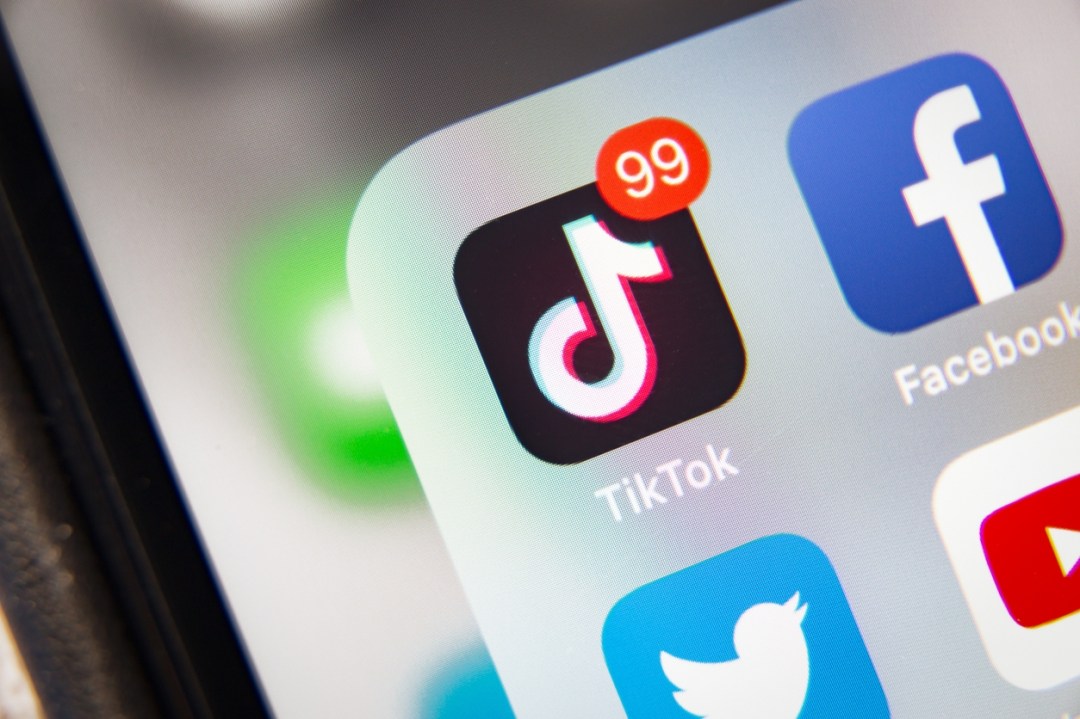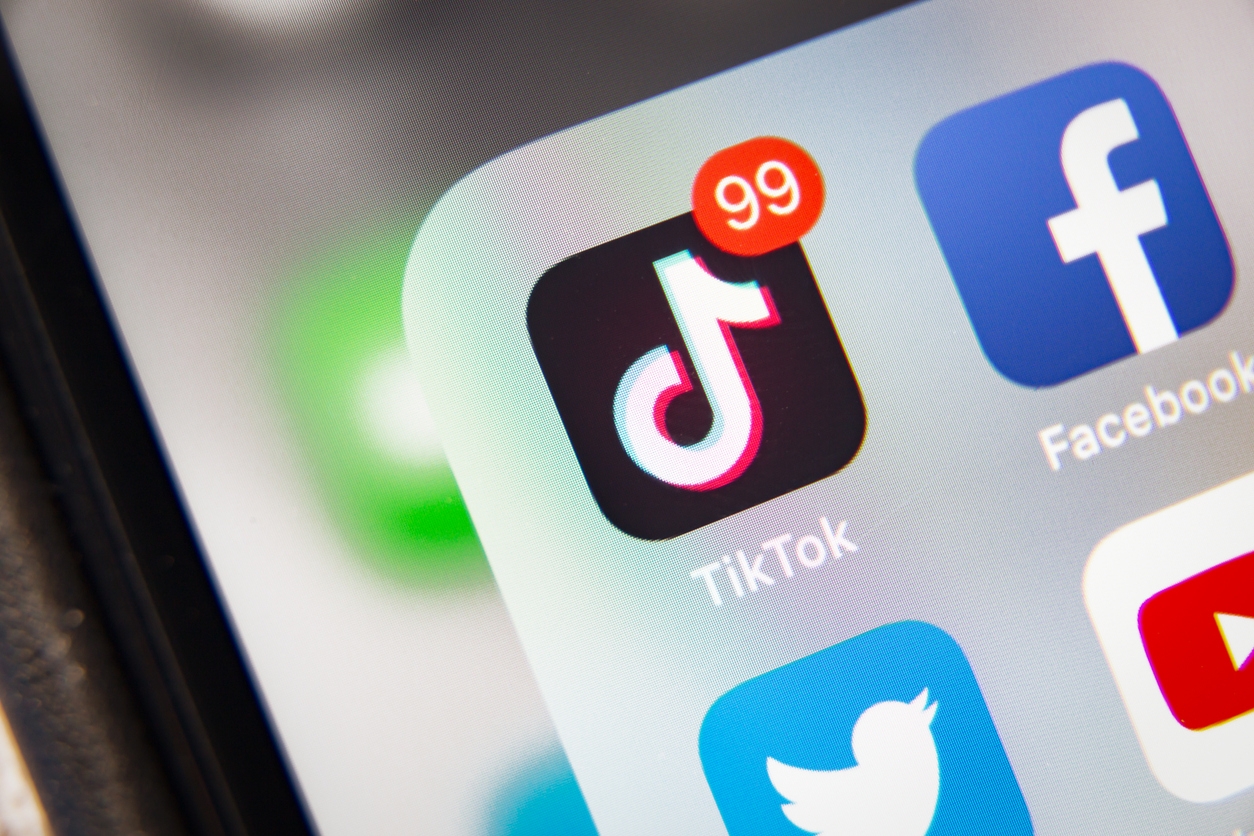If you’re over the age of 20, TikTok can be a bewildering experience. Fire up the app and you’ll be bombarded with a bottomless feed of short, inane and loud videos that play on a loop. But flick through a few videos and maybe, just maybe, you’ll start to see the appeal. It’s an endless feed of pranks, stunts, dancing and lightning-fast comedy skits – and about as intellectually healthy as injecting sugar directly into your bloodstream.
But love it or loathe it, one thing is clear: TikTok matters. It is currently thought to have around 800 million users – including 5 million Brits. Next year its British audience is forecast to double.
What makes it curious in the pantheon of social networks is its parentage. Unlike Facebook and Twitter, which have their roots in Silicon Valley, TikTok was designed and built in China. And now that relations between the West and China are fraying, like Huawei, TikTok is becoming a genuine cause for concern. The government has already ruled out allowing Huawei to be a part of our 5G network, could TikTok be next on the agenda?
In recent weeks, new privacy and security concerns have been raised over TikTok’s app. Researchers who reverse-engineered it revealed that TikTok routinely collects IP addresses, locations, and contact data from users’ phones. Perhaps most surprisingly, the app will even read the data on your phone’s clipboard. So if you copied sensitive text on your phone, such as a password, there’s a chance that TikTok could have accessed that information.
TikTok’s developer, ByteDance, has denied there is any funny business going on, explaining that the clipboard data is merely used for an anti-spam algorithm. To be fair as well, Facebook has an equally contentious track record when it comes to gobbling up every last byte of your data as you browse your news feed. But by definition, this still means sharing your clipboard data with TikTok’s app.
Despite all of this, any direct technical concerns about TikTok are probably overstated. Due to the way Apple’s iPhone and Google’s Android operating systems work, apps run inside what developers sometimes call a ‘walled garden’, which restricts which parts of your phone they are allowed to access without your consent. So there’s no need to worry about ByteDance, or anyone else in China rooting around inside your phone and sending your emails back to Beijing.
But in my view there is still a real problem with TikTok – although this problem is cultural and political, not technical. TikTok already has an enormous influence on young people in the West. It is a major social media platform, a public square and a conduit of information. And it is, ultimately, run at the behest of Beijing.
To be clear, ByteDance is not a state-owned enterprise, but it is headquartered in China. So if the Chinese government wanted, say, videos about Tiananmen Square hidden from the algorithm, it could ultimately make it happen. China has an expansive national security law that compels Chinese firms to share data if the government requests it. It is also widely understood by large firms that a close relationship with the government is the cost of doing business in China. In fact, there are allegations that the company already does this, and is not just censoring content for users in China, but all around the world.
A TikTok spokesperson said, ‘we have no higher priority than promoting a safe and secure app experience for our users. TikTok UK user data is stored in the US and Singapore and we have never provided user data to the Chinese government, nor would we do so if asked. We remain fully committed to investing in the UK and continuing to inspire creativity and bring joy to our users here.’
As the analyst Ben Thompson has observed, it is conceivable that TikTok’s algorithm could be changed, almost invisibly, to promote videos that could help further China’s political goals. Imagine if in late October, TikTok were to suddenly show its millions of users unflattering videos, or even deep-fakes, of Joe Biden, in a bid to turn the US election.
This kind of change to the algorithm would be almost invisible. The company would make sure that its users still see a personalised stream of videos, but with just 2 per cent more anti-Biden content than they would otherwise see. Just like Russian interference in 2016, a million small nudges could tip things in a direction that is more favourable to Beijing’s interests.
This might sound a little silly. After all, TikTok is just for stupid videos at the moment. But not so long ago, Facebook was simply Mark Zuckerberg’s ‘hot or not’ game for his Harvard classmates, and Twitter was used almost exclusively by computer programmers to share what they had for lunch. A decade on and Facebook has arguably played a significant role in a genocide in Burma, and Twitter has the President of America conducting matters of war and peace in real time every morning.
In fact, we may have already seen evidence of the political power of TikTok. A few weeks ago, TikTok teens took credit for a poorly attended Trump rally in Tulsa, after they used viral videos on the platform to coordinate a plan to book all of the tickets.
Ultimately then, two questions remain: how much of a security risk is TikTok? And should it be banned? In my view, and as someone who is usually a ‘free speech’ bore, I think there is a surprisingly strong national interest in restricting its use. Just as we may want to restrict Huawei from our 5G network to stop a strategic rival having leverage over our critical infrastructure, we should consider banning TikTok to protect our democracy too.
In some ways it is surprising that it has taken so long for a question like this to emerge. We were very lucky that it was Silicon Valley and not Shanghai where the major social media platforms emerged. America, for all of its faults, is a mostly functioning democracy that shares our democratic values.
So banning TikTok could be a good idea. Would there be an irony in the British government using its own regulatory powers to force western tech firms to do its bidding and remove TikTok from their app stores? Yes. But would it be right to allow a platform that is subject to the whims of an undemocratic government to play such a powerful role in Britain’s virtual public square? It may be awkward to say, but I think on balance, perhaps not.







Comments